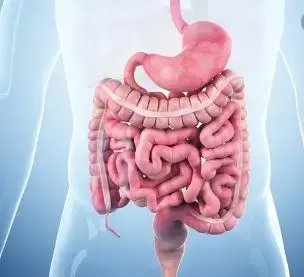- Home
- Medical news & Guidelines
- Anesthesiology
- Cardiology and CTVS
- Critical Care
- Dentistry
- Dermatology
- Diabetes and Endocrinology
- ENT
- Gastroenterology
- Medicine
- Nephrology
- Neurology
- Obstretics-Gynaecology
- Oncology
- Ophthalmology
- Orthopaedics
- Pediatrics-Neonatology
- Psychiatry
- Pulmonology
- Radiology
- Surgery
- Urology
- Laboratory Medicine
- Diet
- Nursing
- Paramedical
- Physiotherapy
- Health news
- Fact Check
- Bone Health Fact Check
- Brain Health Fact Check
- Cancer Related Fact Check
- Child Care Fact Check
- Dental and oral health fact check
- Diabetes and metabolic health fact check
- Diet and Nutrition Fact Check
- Eye and ENT Care Fact Check
- Fitness fact check
- Gut health fact check
- Heart health fact check
- Kidney health fact check
- Medical education fact check
- Men's health fact check
- Respiratory fact check
- Skin and hair care fact check
- Vaccine and Immunization fact check
- Women's health fact check
- AYUSH
- State News
- Andaman and Nicobar Islands
- Andhra Pradesh
- Arunachal Pradesh
- Assam
- Bihar
- Chandigarh
- Chattisgarh
- Dadra and Nagar Haveli
- Daman and Diu
- Delhi
- Goa
- Gujarat
- Haryana
- Himachal Pradesh
- Jammu & Kashmir
- Jharkhand
- Karnataka
- Kerala
- Ladakh
- Lakshadweep
- Madhya Pradesh
- Maharashtra
- Manipur
- Meghalaya
- Mizoram
- Nagaland
- Odisha
- Puducherry
- Punjab
- Rajasthan
- Sikkim
- Tamil Nadu
- Telangana
- Tripura
- Uttar Pradesh
- Uttrakhand
- West Bengal
- Medical Education
- Industry
Tofacitinib use in Ulcerative Colitis may not raise cardiac risk, finds study

In a recent study published in Inflammatory Bowel Diseases, researchers have highlighted that Lipid levels and ratios generally unchanged from baseline after tofacitinib treatment, and major adverse cardiovascular events were infrequent.
Patients with inflammatory bowel disease (IBD), which includes ulcerative colitis (UC) and Crohn's disease (CD), have an elevated risk of cardiovascular morbidity relative to the general population, despite a lower prevalence of classic cardiovascular risk factors (eg, high body mass index, diabetes, hyperlipidemia, and hypertension).
Tofacitinib is an oral, small-molecule Janus kinase inhibitor for the treatment of UC.In clinical studies, tofacitinib treatment has been associated with generally reversible increases in serum lipids during the first few months of therapy.
The present study was undertaken with the aim to review data on lipid levels and cardiovascular events, alongside recommendations for managing lipid levels during tofacitinib treatment in patients with UC, based on up-to-date expert guidelines.
For the study design, Data were identified from a phase 3/open-label, long-term extension (OLE) tofacitinib UC clinical program (cutoff May 27, 2019). Data were available from 4 phase 3 clinical trials of 1124 patients with moderately to severely active UC who received ≥1 dose of tofacitinib 5 or 10 mg twice daily in induction (two identical trials), maintenance, and OLE studies (treatment duration ≤6.8 years; 2576.4 patient-years of drug exposure). The trial was termed as a phase 3/OLE tofacitinib UC clinical program.
On analysis, the following results emerged.
Inthe OLE study, tofacitinib treatment was not associated with major changes from baseline in total cholesterol, high-density lipoprotein cholesterol, low-density lipoprotein cholesterol, triglycerides, total cholesterol/high-density lipoprotein cholesterol, and low-density lipoprotein cholesterol/high-density lipoprotein cholesterol, with lipid levels and ratios generally remaining stable over time.
The major adverse cardiovascular events incidence rate was 0.26/100 patient-years (95% confidence interval, 0.11-0.54).
"As per the approved label, patients commencing tofacitinib therapy should have lipid levels monitored after approximately 4 to 8 weeks, and up-to-date expert guidelines for hyperlipidemia management should be followed. Physicians should follow general clinical guidance on stratification of patients according to cardiovascular risk prior to initiating any therapy, to identify those patients who may benefit from counseling and regular lipid monitoring, and to identify those requiring lipid-lowering intervention during tofacitinib therapy."recommended the team.
For full article click on the link:
https://doi.org/10.1093/ibd/izaa227
Primary source: Inflammatory Bowel Diseases
Dr Satabdi Saha (BDS, MDS) is a practicing pediatric dentist with a keen interest in new medical researches and updates. She has completed her BDS from North Bengal Dental College ,Darjeeling. Then she went on to secure an ALL INDIA NEET PG rank and completed her MDS from the first dental college in the country – Dr R. Ahmed Dental College and Hospital. She is currently attached to The Marwari Relief Society Hospital as a consultant along with private practice of 2 years. She has published scientific papers in national and international journals. Her strong passion of sharing knowledge with the medical fraternity has motivated her to be a part of Medical Dialogues.
Dr Kamal Kant Kohli-MBBS, DTCD- a chest specialist with more than 30 years of practice and a flair for writing clinical articles, Dr Kamal Kant Kohli joined Medical Dialogues as a Chief Editor of Medical News. Besides writing articles, as an editor, he proofreads and verifies all the medical content published on Medical Dialogues including those coming from journals, studies,medical conferences,guidelines etc. Email: drkohli@medicaldialogues.in. Contact no. 011-43720751


